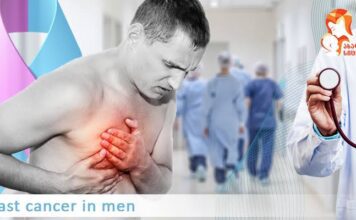Professor Adenike Akhigbe, a Radiology expert at the University of Benin Teaching Hospital in Edo State, emphasized the urgent necessity for increased awareness and education surrounding breast cancer, particularly focusing on men.
During the 312th Inaugural Lecture at the University of Benin, Akhigbe debunked the misconception that breast cancer exclusively affects women, warning that this misunderstanding could lead to delayed diagnoses in men, resulting in the disease being detected at more advanced stages.
Advocating for early detection, the professor urged men to be vigilant in recognizing any abnormal changes in their breast tissue and promptly seek medical help.
Under the theme ‘Seeing the Unseen: Medical Imaging to the Rescue’, Akhigbe highlighted the significance of this proactive approach in facilitating early diagnoses and improving outcomes for male patients, despite breast cancer being less prevalent in men.
To enhance early detection and treatment, Akhigbe stressed the importance of men being familiar with the risk factors and symptoms of breast cancer.
Additionally, the radiology professor emphasized the critical role of mammography in detecting breast cancer early, recommending that women commence regular screenings at the age of 40.
Akhigbe highlighted the crucial role of radiological imaging in contemporary healthcare, clarifying misconceptions and emphasizing the vital need for prompt screenings, particularly for women, who should begin regular checks at the age of 40 to ensure early detection and effective care.
“To facilitate early detection and treatment of breast cancer, men must be aware of the risk factors and symptoms.
“The misconception that breast cancer is exclusively a woman’s disease can lead to delayed diagnoses in men, which often results in more advanced disease at the time of detection,” she elaborated.
Akhigbe, a founding member and former president of the Breast Imaging Society of Nigeria, promoted the idea of regular mammograms for women starting at age 40.
She highlighted the importance of developing tailored screening protocols that address Nigeria’s unique demographic and healthcare challenges.
Akhigbe also emphasized the significance of public education campaigns to raise awareness and encourage early screening to reduce the impact of breast cancer in the country.
Wakadaily discovered that the International Agency for Research on Cancer documented 28,380 new cases of breast cancer in Nigeria in 2020, accounting for 22.7% of all new cancer cases and the highest proportion of all cancer types.
Nigeria has one of the highest age-standardized mortality rates for breast cancer globally, and the highest in Africa, according to IARC.
